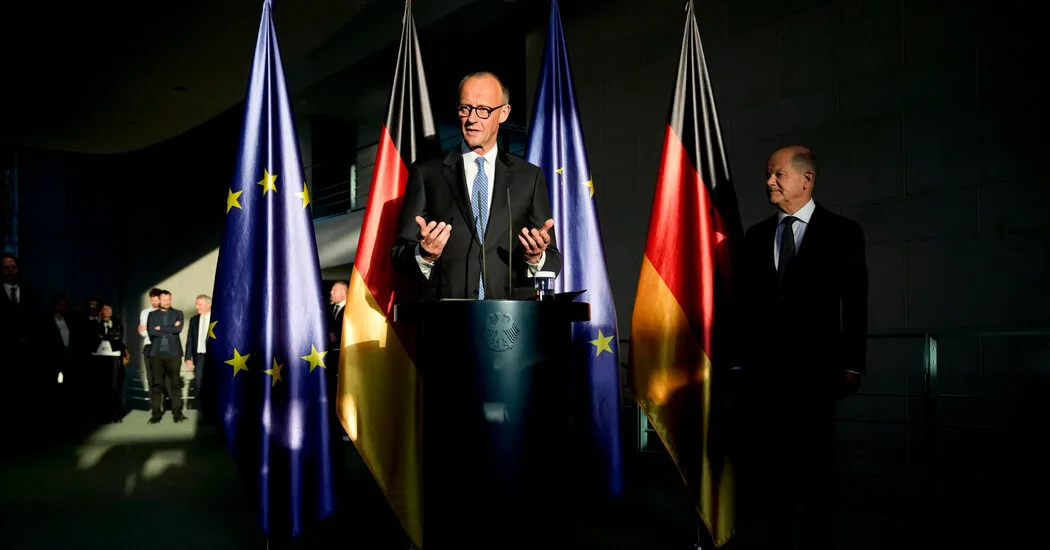

Friedrich Merz secured the top job but only after losing on his first attempt, a surprise that potentially weakens his government at a fraught time for Germany and Europe
Friedrich Merz became Germany’s 10th postwar chancellor on Tuesday after a historic stumble that could complicate his efforts to revive the nation’s slumping economy, tighten its borders and rebuild its military, at a time when an isolated Europe is hungry for strong German leadership.
After 10 weeks as the nation’s leader-in-waiting following his party’s victory in February elections, Mr. Merz initially fell six votes short in the parliamentary vote for chancellor on Tuesday morning — a defeat without precedent in modern Germany’s history.
The votes were conducted on secret ballots, leaving the reasons for the failure murky; the parties in the new governing coalition held more than enough seats to elect him. But some lawmakers speculated that a series of individual protest votes had, possibly by accident, added up to an embarrassing setback.
Mr. Merz, 69, rebounded to win on a second ballot in the afternoon. Still, rival parties and outside analysts warned that his credibility had suffered at home and abroad, and his opponents on Germany’s far left and far right alike said that Mr. Merz had lost legitimacy.
Political observers said the brief setback could make it more difficult than expected for the new chancellor to project strength on the world stage and to pass critical legislation to advance his agenda. Mr. Merz had hoped for a clear vote of confidence in Parliament as he seeks to confront President Trump’s tariff threats against Germany’s export-heavy economy, reverse his country’s economic malaise and counter an aggressive Russia to the east.
“Germany and Europe need to serve as anchors of stability in a volatile global environment,” said Cathryn Clüver Ashbrook, the senior vice president for Bertelsmann Stiftung, a nonpartisan foundation based in Gütersloh, Germany. But Mr. Merz’s unexpectedly delayed election “could signal rocky times ahead.”